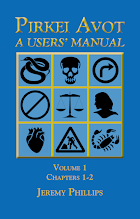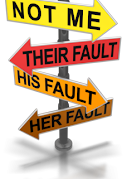This is the full version of a post that was first published yesterday on the Judaism Reclaimed Facebook page.
Ukraine continues its struggle to survive in the face of the
massive military invasion by its powerful Russian neighbour. This invasion has
taken its toll on Ukraine’s Jewish community. Many have fled, leaving family,
friends and possessions behind them. Families have been separated amidst
heart-rending scenes of chaos and panic. Unbelievably, those who choose to
remain and defend their land are charged by the Russian government with being
neo-nazi collaborators. These events raise a difficult question for Russian
Jews. Are they required to pray for the welfare of their state and its leaders
The default position in Pirkei Avot is that every Jew in
every land should follow the guidance of Avot 3:2, where Rabbi Chanina Segan
Kohanim teaches:
“Pray for the peace of the government (in Hebrew, malchut)
since, if it were not for fear of it, a man would swallow his neighbour alive”.
Before discussing the applicability of this teaching today, it is helpful to
contextualise it. Rabbi Chanina lived, and died, in Israel at a time of chaos
and anarchy. The Romans, having occupied the whole of Israel and the Levant,
were the ruling power – the malchut. Nowhere in Israel was more anarchic
than Jerusalem, where the power struggle between different religious and nationalist
factions resulted in the great tragedy of Jew-on-Jew murders which the Roman
governors had no great interest in preventing. The Jewish authorities too were
powerless to stop this carnage. Indeed, the members of the Sanhedrin, the
supreme Jewish court, absented themselves from the Lishkat HaGazit (the
sole location from which they could discharge judicial functions relating to
capital offences) so that they could avoid passing the death sentence on Jewish
murderers. This decision was arguably taken on the basis that, since so many
Jewish lives were already being lost and the death penalty was no longer an
effective deterrent, it was folly to address the escalating mortality rate
among Rome’s Jewish subjects by killing even more of them. In this context,
Rabbi Chanina could be said to have been urging his co-religionists to pray
that the Romans should have the time and the resources to intervene and stop
this senseless internecine slaughter.
Nothing in Rabbi Chanina’s words indicates their scope or
spells out that they apply only to Roman governance of Israel. The Bartenura
therefore reads this Mishnah widely, applying it even to the duty of the Jew
who lives in any other (i.e non-Jewish) nation of the world. Not all
commentators are so worldly, however. The Ritva, for example, learns it is a
maxim for one’s spiritual development: the malchut of which one should
stand in fear is that of the One Above, since it is He alone who judges the way
we manage our lives.
But who or what is really the focal point of this Mishnah?
Tosafot Yom Tov notes that it refers to the peace of the malchut, not
the melech (“king”). Since governmental structures are almost always
hierarchical, ordinary citizens are most likely to encounter the ruler’s
enforcers – government inspectors, tax collectors and other members of the
lower echelons of power. These people too should be prayed for, in the hope
that they will discharge their duties in a manner that is neither unfair nor
burdensome. The Tiferet Yisrael picks up on the same terminological point. He
observes that, while there is always a malchut, there may be no melech
at all. He cites Rome in the days of the Republic and, in more recent times,
the democratic cantonal governance of Switzerland.
While the words of the Mishnah indicate that the great evil
which it seeks to avoid is anarchy, traditional commentators have shown that
this Mishnah is flexible and can been subjected to many different
interpretations. One might therefore expect a variety of approaches to the
question that opens this essay: do we pray for the welfare of an oppressive
government that is led by a dictator or tyrant, and which may implement
policies that are harmful to or downright destructive of Jewish interests and
values?
Some commentators adhere rigidly to the notion of prayer
even when the government is hostile to Jewish interests. Writing in Germany in
the mid-19th century, Rabbi Shimshon Raphael Hirsch urges that one should not
merely pray for the well-being of the state but should actively promote its
interests. Rabbi Marcus Lehmann goes further: “Even an unfair and despotic
government is a thousand times better than anarchy and no government at all”.
It is ironical that the staunchest exponents of support for the state,
regardless of its nature, should come from the jurisdiction that spawned
state-sponsored genocide.
In the wake of the atrocities of the Second World War,
Jewish scholars, politicians and historians have generated between them a vast
literature on the relationship of the Jew to the State. This intense focus has
not however been directed at the meaning and relevance today of Rabbi Chanina’s
Mishnah.
Numerous popular post-War writers on this Mishnah do not
cite the Holocaust and the Third Reich in Hitler’s Nazi Germany as imposing any
limitations on the need to pray for the welfare of the State. For some who
survived that war the topic may have been too fresh and raw for them to tackle,
or the duty not to pray for such a regime may have been so obvious as not to
need stating. In this category we find Rabbi Shalom Noach Berezovsky’s Netivot
Shalom, Rabbi Yisrael Meir Lau’s massive Yachel Yisrael and the Be’er
Avot of Rabbi Mordechai Mendel Frankel-Teumim. There are also Rav Ovadyah
Yosef who, in Anaf Etz Avot—a pirush on Avot that spans some 400 pages—this
Mishnah receives little more than half a page. More recently, Irving
Greenberg’s Sage Advice—a work that is not short of opinions—leaves this
Mishnah with the Romans. The decision not to address the relevance of this
Mishnah to modern dictators and their regimes is not limited to commentators
from the orthodox camp. Judah Goldin’s The Living Talmud: the Wisdom of the
Fathers and Kravitz and Olitzky’s Pirke Avot: a Modern Commentary on
Jewish Ethics reflect the same trend
Others touch upon the case of the problematic regime in such
indirect terms that one might entirely miss their relevance to our question.
Thus Reuven P. Bulka, Chapters of the Sages, writes: “Certain
governments, as has been the pattern in Jewish experience were fear-inspiring
and even tried to interfere with the Jew’s attempts to actualize Jewish
responsibilities It would seem that we are praying for something that goes
against our theological responsibilities”. The text continues in the same vein
and the reader is left to decide for himself what this means.
Two American commentaries do however meet the issue of the
tyrannical regime full-one. The first, Irving M. Bunim’s Ethics from Sinai,
describes the gullibility of those who would deny the possibility of Nazi-style
genocide, citing reasons that echo the terms of Rabbi Y. Y. Weinberg’s letter
to Hitler in 1933. For Bunim one’s prayer should be not so much for the welfare
of the government as for “good conditions” since it is the absence of peace and
tranquility that turns humans into beasts of the jungle. The second, Rabbi Marc
D. Angel, in the Koren Pirkei Avot, would curtail the application of
this Mishnah so as to avoid praying for the welfare of the wicked. He writes
that “praying for the welfare of the government is relevant only if the
government itself is just. If the government is immoral, one should certainly
not pray for its welfare”, making specific reference to the Nuremburg trials
and the role played by judges and others in enforcing laws that by no standard
of morality could be justified.
This Mishnah forms the religious basis for reciting the
prayer of HaNoten Teshua in the Diaspora and is therefore the source of
a well-known Anglo-Jewish institution, the Shabbat morning Prayer for the Royal
Family. This prayer, which is usually recited in English, encompasses the
well-being of the ruling monarch (at the time of writing, Her Majesty Queen
Elizabeth II) and the Royal Family. On the basis that the Head of State is only
a constitutional monarch, the text of this prayer also covers the elected
government of the day:
“May [God] put a spirit of wisdom
and understanding into her heart, and into the hearts of all her counsellors,
that they may uphold the peace of the realm, advance the welfare of the nation,
and deal kindly and justly with all the House of Israel.”
While it is never possible to ascertain with certainty the
extent to which one’s prayers are positively acted upon by God, the period
within which this prayer has been regularly recited in British synagogues spans
more than a century in which British Jews have been able to exercise an
increasing range of civil and religious rights in their host country. It is
also the period in which the government published the Balfour Declaration and
subsequently voted in favour of the establishment of an independent Jewish
State of Israel.
The text of this
prayer does not endorse the policies of “my country right or wrong” and plainly
does not endorse the initiation and pursuit of any government policies that are
inimical or hostile to Jewish interests. It is bland and appears to be written
in such a manner as to avoid giving offence to those whom it is articulated. A
draft of this nature may be said to implement the guidance of Rabbi Chanina
while not straining the conscience of inhabitants of even the most corrupt and
contrary regimes.














